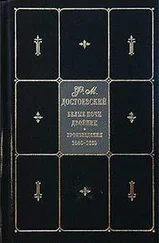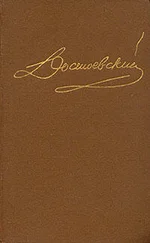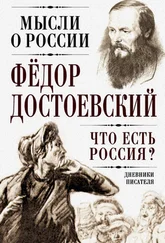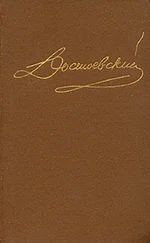According to the reports of the most talented gossip–mongers—those who, in every class of society, are always in haste to explain every event to their neighbours—the young gentleman concerned was of good family—a prince—fairly rich—weak of intellect, but a democrat and a dabbler in the Nihilism of the period, as exposed by Mr. Turgenieff. He could hardly talk Russian, but had fallen in love with one of the Miss Epanchins, and his suit met with so much encouragement that he had been received in the house as the recognized bridegroom–to–be of the young lady. But like the Frenchman of whom the story is told that he studied for holy orders, took all the oaths, was ordained priest, and next morning wrote to his bishop informing him that, as he did not believe in God and considered it wrong to deceive the people and live upon their pockets, he begged to surrender the orders conferred upon him the day before, and to inform his lordship that he was sending this letter to the public press,—like this Frenchman, the prince played a false game. It was rumoured that he had purposely waited for the solemn occasion of a large evening party at the house of his future bride, at which he was introduced to several eminent persons, in order publicly to make known his ideas and opinions, and thereby insult the "big–wigs," and to throw over his bride as offensively as possible; and that, resisting the servants who were told off to turn him out of the house, he had seized and thrown down a magnificent china vase. As a characteristic addition to the above, it was currently reported that the young prince really loved the lady to whom he was engaged, and had thrown her over out of purely Nihilistic motives, with the intention of giving himself the satisfaction of marrying a fallen woman in the face of all the world, thereby publishing his opinion that there is no distinction between virtuous and disreputable women, but that all women are alike, free; and a "fallen" woman, indeed, somewhat superior to a virtuous one.
It was declared that he believed in no classes or anything else, excepting "the woman question."
All this looked likely enough, and was accepted as fact by most of the inhabitants of the place, especially as it was borne out, more or less, by daily occurrences.
Of course much was said that could not be determined absolutely. For instance, it was reported that the poor girl had so loved her future husband that she had followed him to the house of the other woman, the day after she had been thrown over; others said that he had insisted on her coming, himself, in order to shame and insult her by his taunts and Nihilistic confessions when she reached the house. However all these things might be, the public interest in the matter grew daily, especially as it became clear that the scandalous wedding was undoubtedly to take place.
So that if our readers were to ask an explanation, not of the wild reports about the prince's Nihilistic opinions, but simply as to how such a marriage could possibly satisfy his real aspirations, or as to the spiritual condition of our hero at this time, we confess that we should have great difficulty in giving the required information.
All we know is, that the marriage really was arranged, and that the prince had commissioned Lebedeff and Keller to look after all the necessary business connected with it; that he had requested them to spare no expense; that Nastasia herself was hurrying on the wedding; that Keller was to be the prince's best man, at his own earnest request; and that Burdovsky was to give Nastasia away, to his great delight. The wedding was to take place before the middle of July.
But, besides the above, we are cognizant of certain other undoubted facts, which puzzle us a good deal because they seem flatly to contradict the foregoing.
We suspect, for instance, that having commissioned Lebedeff and the others, as above, the prince immediately forgot all about masters of ceremonies and even the ceremony itself; and we feel quite certain that in making these arrangements he did so in order that he might absolutely escape all thought of the wedding, and even forget its approach if he could, by detailing all business concerning it to others.
What did he think of all this time, then? What did he wish for? There is no doubt that he was a perfectly free agent all through, and that as far as Nastasia was concerned, there was no force of any kind brought to bear on him. Nastasia wished for a speedy marriage, true!—but the prince agreed at once to her proposals; he agreed, in fact, so casually that anyone might suppose he was but acceding to the most simple and ordinary suggestion.
There are many strange circumstances such as this before us; but in our opinion they do but deepen the mystery, and do not in the smallest degree help us to understand the case.
However, let us take one more example. Thus, we know for a fact that during the whole of this fortnight the prince spent all his days and evenings with Nastasia; he walked with her, drove with her; he began to be restless whenever he passed an hour without seeing her—in fact, to all appearances, he sincerely loved her. He would listen to her for hours at a time with a quiet smile on his face, scarcely saying a word himself. And yet we know, equally certainly, that during this period he several times set off, suddenly, to the Epanchins', not concealing the fact from Nastasia Philipovna, and driving the latter to absolute despair. We know also that he was not received at the Epanchins' so long as they remained at Pavlofsk, and that he was not allowed an interview with Aglaya;—but next day he would set off once more on the same errand, apparently quite oblivious of the fact of yesterday's visit having been a failure,—and, of course, meeting with another refusal. We know, too, that exactly an hour after Aglaya had fled from Nastasia Philipovna's house on that fateful evening, the prince was at the Epanchins',—and that his appearance there had been the cause of the greatest consternation and dismay; for Aglaya had not been home, and the family only discovered then, for the first time, that the two of them had been to Nastasia's house together.
It was said that Elizabetha Prokofievna and her daughters had there and then denounced the prince in the strongest terms, and had refused any further acquaintance and friendship with him; their rage and denunciations being redoubled when Varia Ardalionovna suddenly arrived and stated that Aglaya had been at her house in a terrible state of mind for the last hour, and that she refused to come home.
This last item of news, which disturbed Lizabetha Prokofievna more than anything else, was perfectly true. On leaving Nastasia's, Aglaya had felt that she would rather die than face her people, and had therefore gone straight to Nina Alexandrovna's. On receiving the news, Lizabetha and her daughters and the general all rushed off to Aglaya, followed by Prince Lef Nicolaievitch—undeterred by his recent dismissal; but through Varia he was refused a sight of Aglaya here also. The end of the episode was that when Aglaya saw her mother and sisters crying over her and not uttering a word of reproach, she had flung herself into their arms and gone straight home with them.
It was said that Gania managed to make a fool of himself even on this occasion; for, finding himself alone with Aglaya for a minute or two when Varia had gone to the Epanchins', he had thought it a fitting opportunity to make a declaration of his love, and on hearing this Aglaya, in spite of her state of mind at the time, had suddenly burst out laughing, and had put a strange question to him. She asked him whether he would consent to hold his finger to a lighted candle in proof of his devotion! Gania—it was said—looked so comically bewildered that Aglaya had almost laughed herself into hysterics, and had rushed out of the room and upstairs,—where her parents had found her.
Читать дальше
Конец ознакомительного отрывка
Купить книгу










